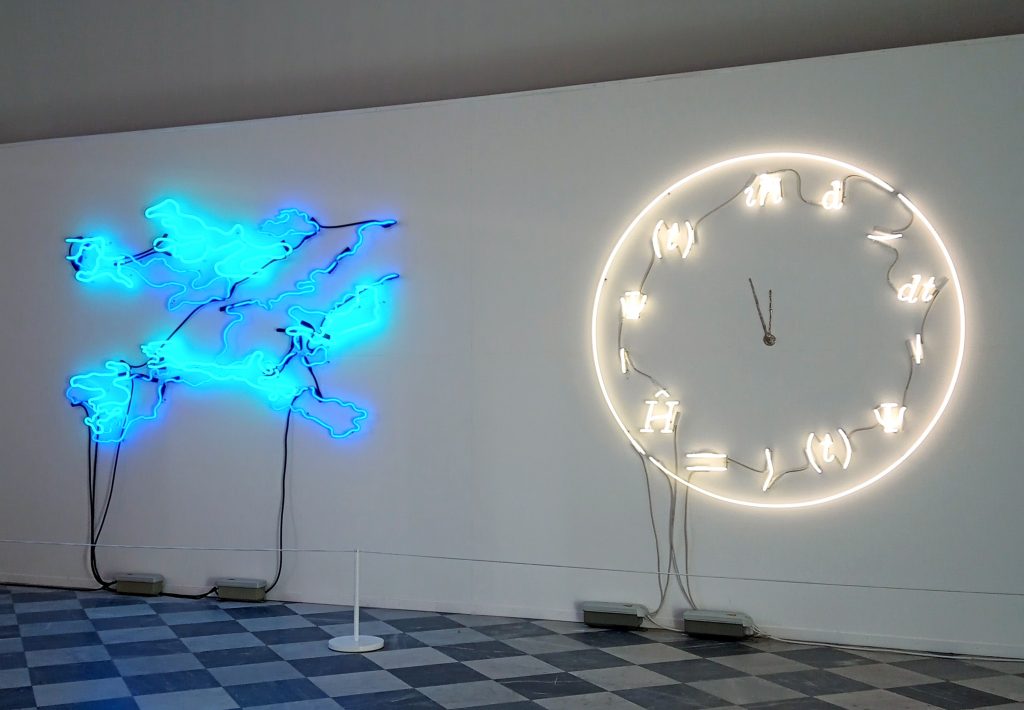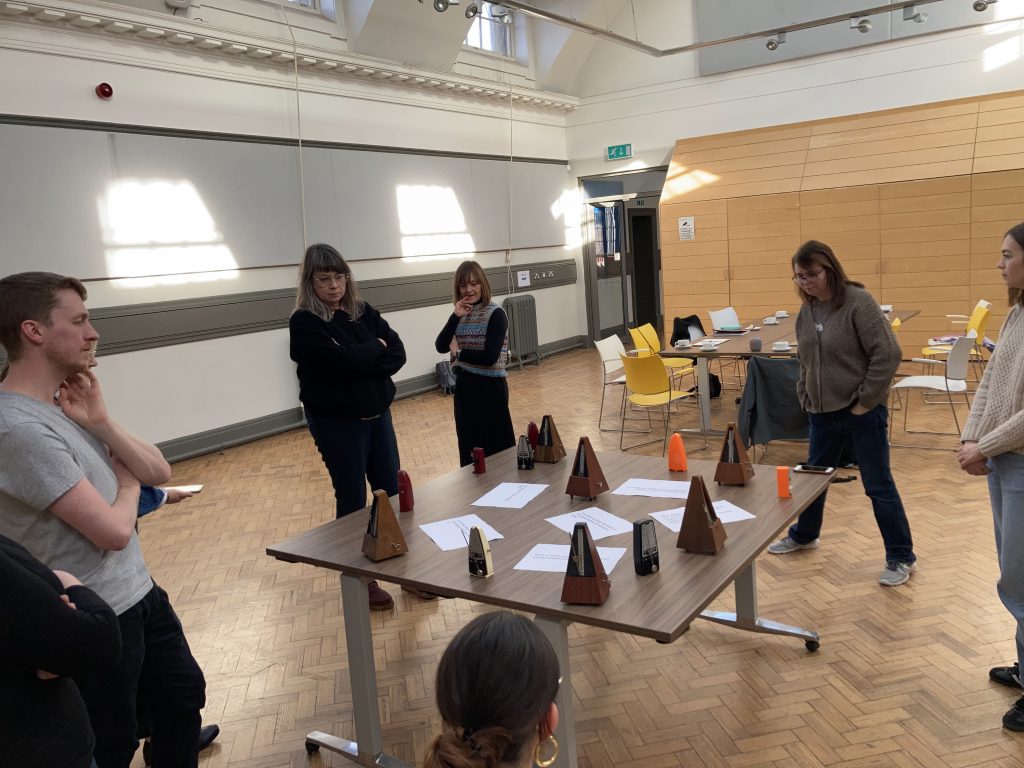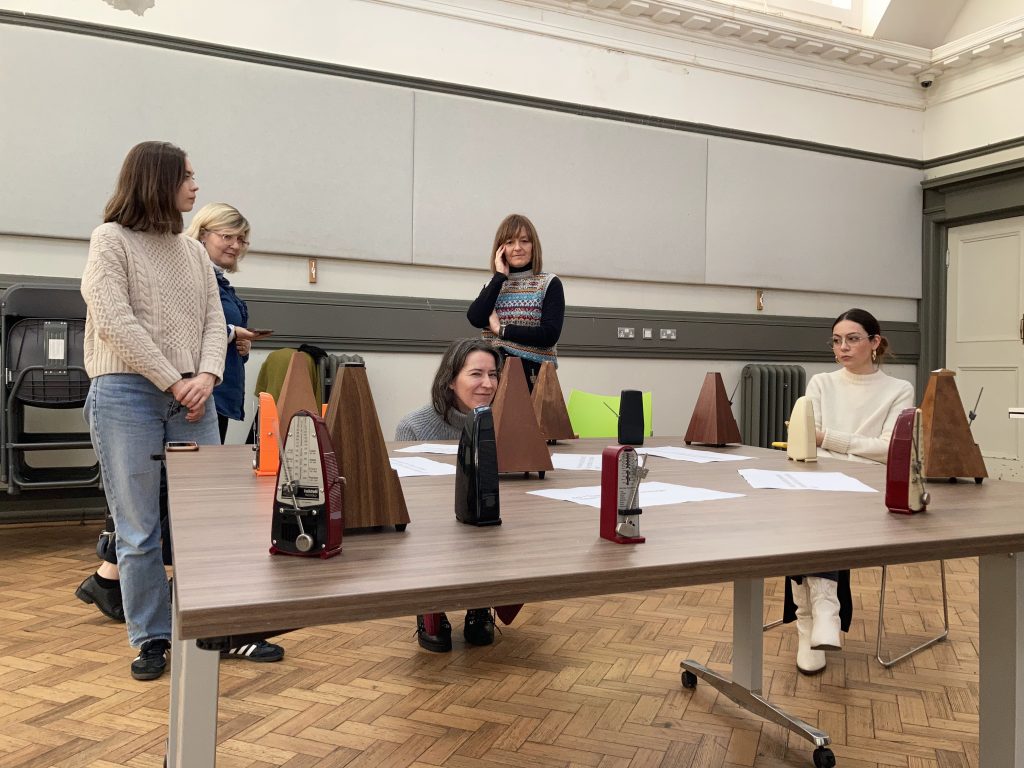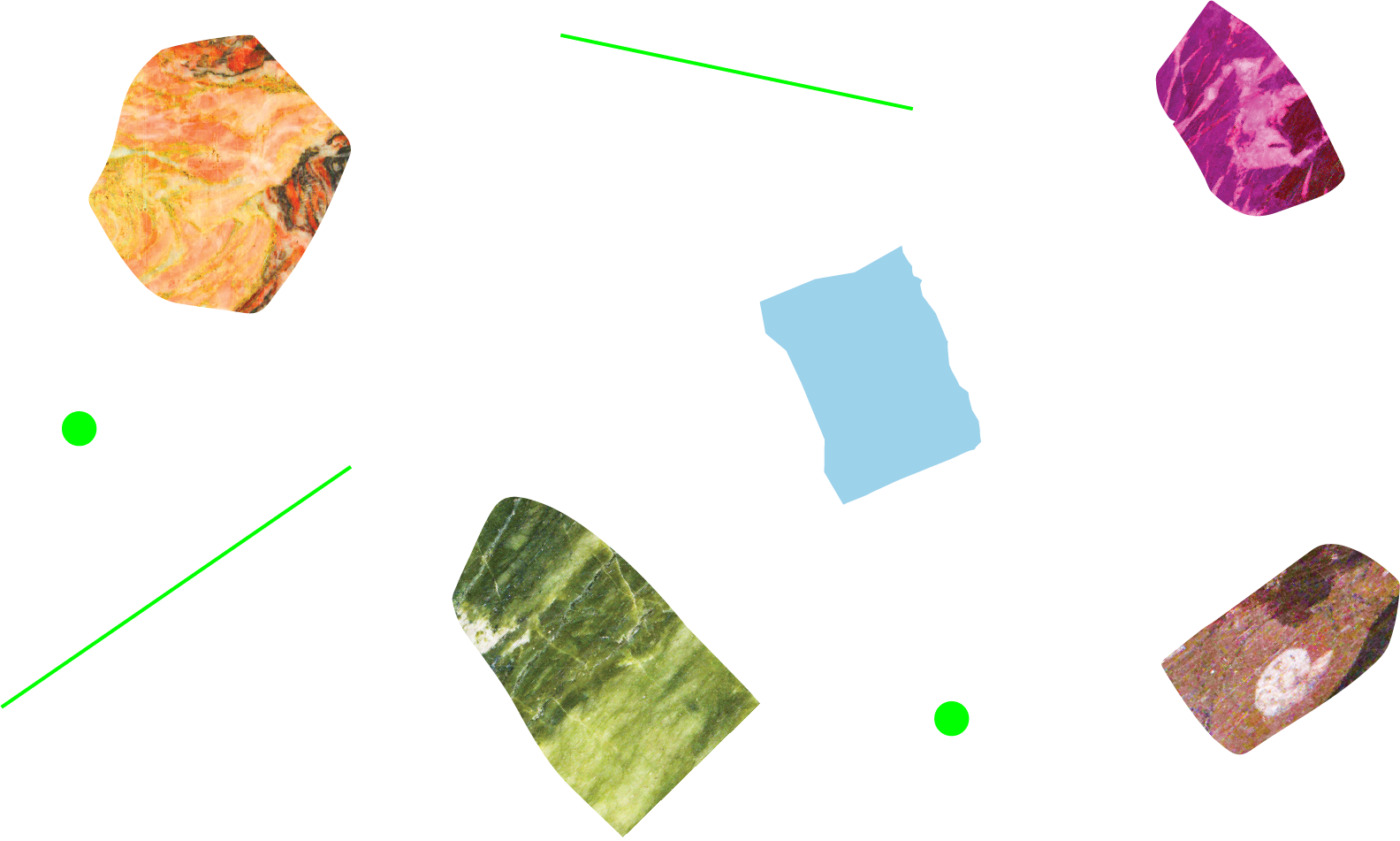(10min Audio)

The collective met at the Grundy Art Gallery in Blackpool to view the new neon work commissioned for Hybrid Futures, RA Walden’s The Universe is a Clock (i) Schrödinger’s equation, (time dependent), 2023 and the New Contemporaries exhibition. The work of RA Walden explores Crip ecologies and non-normative readings of and relationships to time. New Contemporaries is an annual exhibition which presents the work of new graduate artists. As part of the gallery, tour the group discussed the ideas, innovations, relevance, effectiveness and voices these artists bring to the climate crisis debate.
In Blackpool library, the group took part in an exercise developed by Kit Abramson, Collective Futures’ Creative Producer and Rachel Burns, Curatorial and Community Engagement Coordinator, Touchstones with audio by RA Walden that asked the group to consider their own understandings of time. RA Walden’s work opens up questions of clock time, sick time and normative timekeeping as we occupy bodies in their varying states of health, on a planet careening toward sickness.
The collective did an exercise using metronomes – some Bakelite, some antique, large, or small, and colourful – which were laid out on a large table. The collective was each tasked to set their metronomes at the pace that they felt their body and their own embodied time was moving at that very moment. The intention was to connect as a collective, to attempt to see the ways that we are trying to share space with each other or to reach each other, when each experience time in vastly different ways. The metronomes in this exercise served as a tool to illuminate the ways that time is subjective. The collective was asked as they set their metronome to take some time to think about the ways that normative ideas of time affect their daily life. For example, how does the idea of time interact with the ideal of labour? How does our ability to imagine the future affect our ability to make change in the now, especially in relation to the climate crisis? How is time weaponised against marginalised bodies? How do our bodies fall short of the expectations of normative time? What ideas about time have I internalised that I don’t believe in? Do I feel like I have enough time? If yes, how much? If no, how little?
Once the group each found their speed and set their metronome, these were placed on the table and allowed to sit with the interrupting and interweaving beats. The group
collectively decided when everyone had had enough of listening to the cacophony of alternative times.
Discussion followed on each of our very different experience of time, reflecting back to our previous session in Salford – linking to the art collection and what we conserve, preserve, and reserve for future generations, long terms and long termism – looking for opportunity to change behaviour and make room for the ripple beyond our part in our institution or the role and influence we with have in our community.
Try the Exercise for yourself and listen to the Questions. You can download a free digital metronome too.



